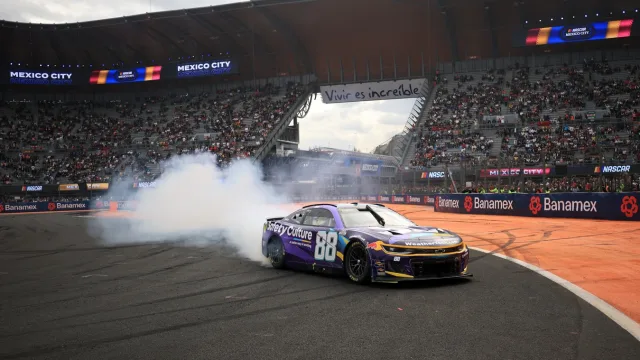The Kurt Busch NASCAR career journey embodies perseverance and raw determination, as he rose in the world of stock car racing without the privilege of a well-known racing surname, carving a legacy for both himself and his family. Beginning at the grassroots level, Busch overcame obstacles and changed the way drivers approach NASCAR, setting the stage for a new family dynasty in the sport.
Facing Challenges Without Major Backing
Today’s up-and-coming NASCAR drivers frequently benefit from substantial financial support and connections, but when Kurt Busch started out, determination and grit were essential to making an impact. Entering the racing scene at the Pahrump Valley Speedway at just 14, he competed in IMCA Modified events, gradually advancing by proving himself on the track rather than through any famous family ties.
Rising Through Notable Racing Events
Busch’s career took a significant turn in 1997 when he participated in the Winter Heat Series at Tucson Speedway, one of the most-watched events on television at that time. The series attracted top drivers like Matt Kenseth, Kevin Harvick, and Matt Crafton from across the nation, creating intense competition and raising the stakes for all competitors involved. Busch’s notable performances during this period brought him national recognition.
Breaking into the Top Tiers With an Uncompromising Style
His achievements at Tucson eventually led to an opportunity with Roush Racing in the Craftsman Truck Series in 2000. From there, Busch became known for bringing an aggressive style to the Cup Series, marking a shift in racing culture within NASCAR. He explained how this approach altered the dynamics among drivers:

We brought our style of racing to Cup, and it started to change the way some people drove. It changed the etiquette. A lot of us just went hard. We didn’t really respect the other guys as much as the Southeastern drivers did. The old-school guys gave a lot of room to each other. For us, we were in the arms race era, if I can define that to everyone.
—Kurt Busch, NASCAR Champion
In this era, prominent team owners like Joe Gibbs, Rick Hendrick, and Jack Roush were investing heavily in drivers such as Tony Stewart, Jimmie Johnson, Matt Kenseth, and Busch himself, pushing the competitiveness of the sport to new levels.
A Family Responsibility Beyond Personal Success
Growing up, Busch’s father was not a widely recognized racer, but a local competitor who offered strong support to his sons. Understanding his father’s position, Kurt Busch felt a duty to pave a path for his younger brother, Kyle Busch. The responsibility to create opportunities extended beyond his own career:
It wasn’t like my dad was Bill Elliott and I’m Chase Elliott and this is going to be the path. Mine was, ‘What bridge do I think I can go over and leave it behind so that my brother could follow me?’ With the different race teams that I went to, I was always trying to promote my little brother. I was hoping that Kyle could get to the next level,
—Kurt Busch, NASCAR Champion
His dedication paid off, as Kyle Busch went on to become a two-time Cup Series champion, further elevating the family’s reputation in NASCAR circles.
Building a Lasting NASCAR Legacy
Looking at Busch’s professional path, it is clear that his approach has helped transform his own career and opened doors for his family. Today, the Busch name is synonymous with success in racing, as Kyle’s son, Brexton, begins his journey behind the wheel, and Kurt himself is set to be inducted into the NASCAR Hall of Fame. Through perseverance and a relentless drive, the Busch family now stands as a powerful force in the sport, proving that legacy can be built on determination as much as on a famous last name.
